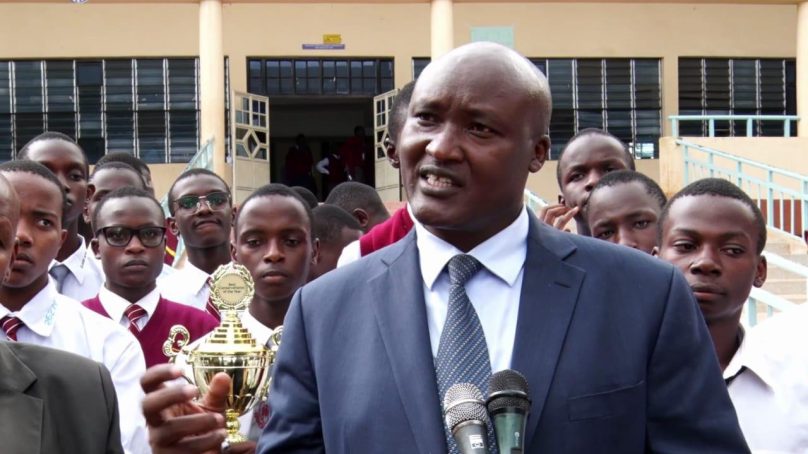
The government has paid out Ksh2.8 billion ($21.621 million) as compensation to victims of human-wildlife conflict in the last two years, ending long suffering for the victims, Conservation Secretary in State Department of Wildlife John Chumo has said.
However, the government has not been explicit on rapid human settlements encroachment on wildlife reserves as space previously assigned to animals thins out.
Chumo said the drive has seen the pending bills reduce from Ksh4.1 billion (($31.7 million) inherited two years ago to about Kshh2.3 billion ($17.8 million) currently.
Speaking during a stakeholders meeting at Mangu High School, Chumo said the ministry has been disbursing close to $4.7 million to victims this year, to bring the approximate total to $7.4 billion
The amount, he said might be boosted in the coming years to fully clear all the pending bills. The official attributed the aggressive compensation drive to a well streamlined data based or victims and the government’s goodwill to the victims.
“Since this government took over, there has been rigorous compensation efforts to human wildlife conflict victims. Two years ago, the pending bills were Ksh4.1 billion ($31.7 million). Several victims were suffering due to compensation delays. After establishing a streamlined database of victims, we have paid Ksh2.8 billion ($21.621 million) in the last two years. Going forward, we hope the amount will be boosted to target more beneficiaries,” he said.
While noting that compensation cannot be enough, Chumo said the state department has also embarked on mitigation measures to curb human wildlife conflict including fencing of game parks and game reserves.
Other measures, he said are building of water pans and boreholes at the animal habitats to ensure the wildlife don’t come out in search of water in areas where people reside. This comes even as the government unveiled a new, technology-driven model to compensate victims of human wildlife conflict to replace outdated manual systems in a more aimed at enhancing transparency.
Through the system small claims are processed using Mpesa – a mobile money transfer app – making it fast and efficient.
Data from the state department shows over 57,000 HWC incidents were reported nationally from 2009 to 2024. The data also shows that snake bites, marauding hyena, crocodiles and hippo attacks and crop damages by elephants as among the common human wildlife conflict cases reported in the country.
- A Tell Media / KNA report / By Muoki Charles
Conservation Secretary in State Department for Wildlife John Chumo during a stakeholder meeting at Mang’u High School







